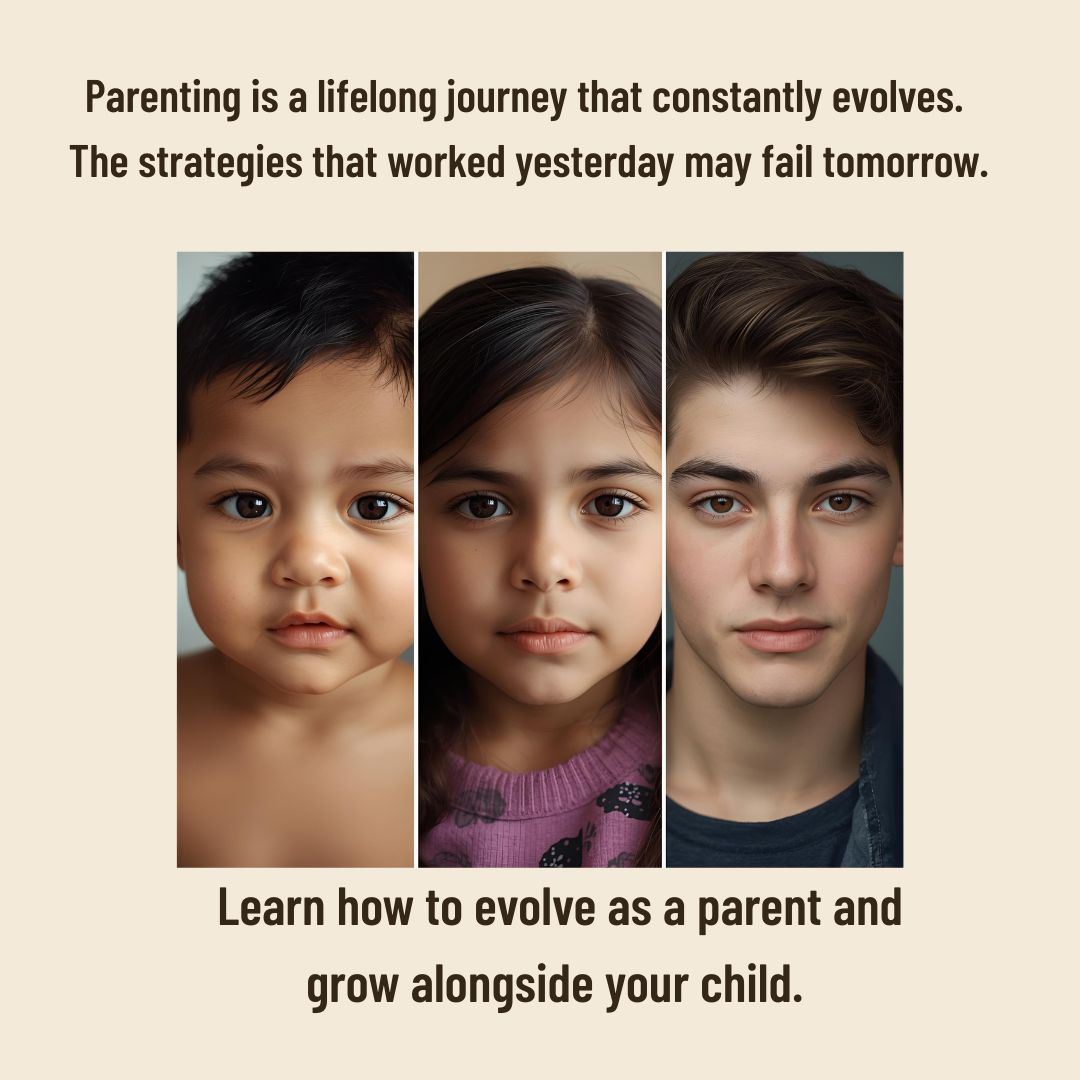Parenting is often described as one of life’s greatest journeys, and it’s true. It’s a wonderful opportunity to be part of something amazing.
But what makes it challenging is that the journey is constantly changing, and that your early experiences can set you up to fail as the child grows.
To put this another way, the strategies that worked yesterday may have set you up with approaches that will fail tomorrow. That’s why evolving parenting through change is essential for every family.
To understand what I’m talking about, we need to look at parenting through change through the lens of the Integrated Values Iceberg, which I introduced in the book Listening – A Guide to Building Deeper Connections.
The Early Years
When children are young, you are in complete control. You are responsible for every aspect of that child’s life—when and what they eat, when they go to bed, what they wear, who they interact with, and so much more.
While they are babies, they are completely dependent on you. If you were to neglect them, they could die. That’s how important you are in their life.
If we look at what you learn during that period through the lens of the Integrated Values Iceberg, we can explore the values that are ingrained in you as a parent. You see your purpose as being in control in order to keep them safe. You don’t discuss anything with them, you simply impose your will. It’s easy enough to do because the reality is you are in control of them and their life.
The problem is that the purpose, identity, and beliefs that are built during this period, about needing to be in control, are very difficult to change as they get older, mainly because you don’t even realise they are there. They have just become ingrained in you through years of experience. This is why letting go of control in parenting later on can feel so uncomfortable.
The Childhood Years
As your child grows and moves into the next phase of their life, roughly from the age of seven through to the early teenage years, they start to mature and learn more about the world. During this period, they need to learn that they will eventually become responsible for the decisions they make.
If you are still trying to parent them through the lens of being in control, you will experience difficulties. They will push back because they are starting to learn about their independence.
It’s important that your purpose, identity, and beliefs shift during this period. Think about your purpose as a parent at this phase of your child’s life. Do you want to help them make good decisions or simply impose your will?
This is what it means to evolve as a parent.
If you continue parenting with the same mindset that was ingrained in the early years, you will struggle during these years. The child will push back and you will end up in frequent arguments.
This is the time to practise sharing decision-making with children. The Integrated Values Iceberg can help you think about what matters most during these years—your outcomes, behaviours, beliefs, identity, and purpose.
The Teenage Years
The need to adapt your parenting style is never greater than when your child enters their teenage years. At this point, you need to seriously think about your purpose as a parent.
The harsh reality is that control is no longer an option, because if you try to control them, they will just end up lying to you and doing what they want anyway. This is a common challenge in parenting teens in Australia and worldwide: how to influence without imposing.
Parenting through the teenage years is about guidance, trust, and communication. It’s the ultimate test of your ability to let go of control in parenting and move towards mutual respect.
Making Conscious Decisions
Too many people allow their purpose, identity, and beliefs to be shaped by the early years and never make a conscious choice about the type of parent they want to be as their child grows.
If this happens, they are almost certainly set up for failure because those early ideas will fail them during the teenage years.
If we simplify the changes into three distinct phases, then here’s a different way of thinking about it. You will need to shift from:
• Making all the decisions and being in control, to
• Sharing and explaining decisions as a way of helping them grow so they can learn to share control, to
• Letting them make decisions and giving them control.
To put this in really simple terms, part of your evolution as a parent is learning to move from being in control, to sharing control, to giving away control. Is that something you’re ready to do?
This is the parent responsibility shift and it’s one of the most powerful changes you can make in parenting as children grow.
Closing Reflection
Parenting is about more than raising children, it’s about growing alongside your child. The more you evolve your purpose, identity, and beliefs as a parent, the stronger your bond will be, even through the turbulence of adolescence.
This is the heart of evolving parenting through change—learning to adapt, let go, and redefine your role as your child’s needs change.
Call-to-Action
If you’d like practical tools for deepening connection with your children, partners, or colleagues, you’ll find them in Listening – A Guide to Building Deeper Connections.
Available in paperback, eBook, and Audiobook.
Related Resources
- 📖 Book: Listening – A Guide to Building Deeper Connections – available in paperback, eBook, and audiobook.
🎯 Coaching: Book a personal session for personalised support.
💼 Leadership Tips: Subscribe to the Team Focus newsletter here.







